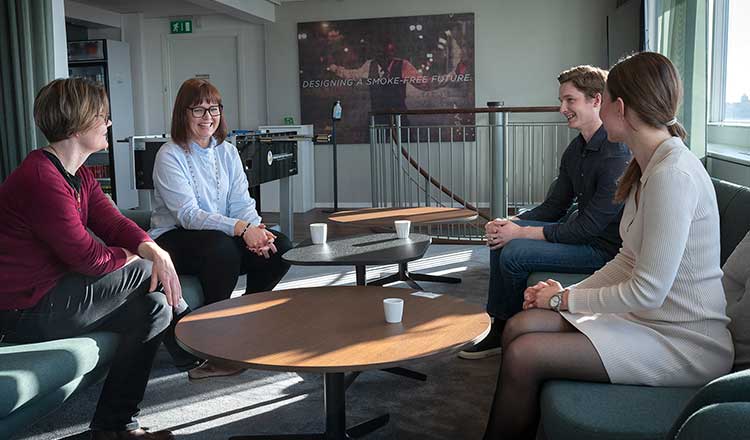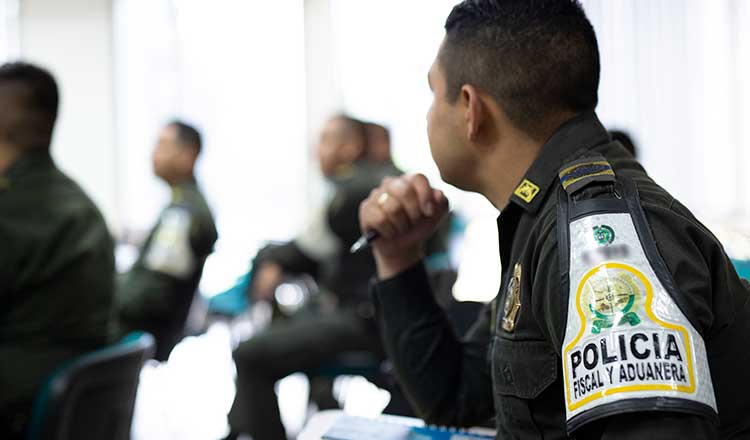| INTEGRATED REPORT 2020 |
Topic description
To PMI, respect for human rights means safeguarding the rights and dignity of all people impacted by our activities and ensuring compliance with both international standards and PMI’s internal policies.
The business case
At PMI, respecting human rights is fundamental to sound risk management and value creation. It is not only the right thing to do—there is also a strong business case: Fostering and promoting the continuous integration of human rights considerations in our strategy and operations allows us to minimize legal and financial risks, as well as prevent the risk of supply chain disruption. A company’s overall reputation is based on its acts and the trust it garners around how those acts are perceived by stakeholders. Moreover, potential exclusion from public procurement, as well as exposure to human rights related litigation, may affect us negatively. The risk is particularly important for multinational companies like ours, operating across the world. Safeguarding and promoting human rights within our value chain creates the basic environment and conditions for our stakeholders, including our employees, to thrive and create value. Combined with a positive, inclusive culture and sound management this provides the space and opportunity to fulfill our key business enablers of innovation, collaboration, continuous improvement, and execution.
Respect for human rights is a tier 1 topic within our strategic pillar Operating with excellence.

Our progress in 2020
read more
The right thing to do
The United Nations Guiding Principles on Business and Human Rights, as well as academia, recognize that businesses now operate under an expanding web of liability that results from the rise of cross-border human rights legislation.
From a societal standpoint, human rights are inherent in the dignity of human life and are a prerequisite for any society to prosper. As a global company, we can have a significant impact on protecting and promoting the rights of our stakeholders, and we expect and require the same behavior of our business partners, including our suppliers.
Our aim:
10
Highest-risk countries covered by external human rights impact assessments and findings addressed by 2025
Achieving our aims
We aim to address our adverse impacts and maximize our opportunities to drive positive change for people across our value chain. While this can be challenging given the scope and complexity of the issues and the breadth of our operations, we believe that human rights are an absolute and universal requirement—a requirement we are committed to upholding. We aim to continuously improve our practices with respect to identifying and addressing risks and impacts to “rights-holders” across our operations and supply chain, including by securing our supply of raw materials responsibly.

As we progress toward our vision of a smoke-free future, the realm of our human rights work is expanding into new sectors and activities. The broadened scope of our work—within the electronics industry, for instance—represents an opportunity to identify and tackle human rights issues from the start. We continually refine our approach to ensure real, positive impact for rights-holders.
Our work, which is governed by PMI’s Commitment to Human Rights, is managed by a cross-functional team and delivered through extensive internal engagement and training, externally conducted human rights impact assessments (HRIAs), consultation with experts, and partnership projects with peers. Tackling human rights abuses requires a collaborative effort involving suppliers, governments, NGOs, and other stakeholders.
PMI’s efforts—and the underlying methods—have been highlighted in a case study published in early 2021 by Shift, the leading center of expertise on the UN Guiding Principles on Business and Human Rights. According to Shift, building good relationships with affected stakeholders, communities, and consumers is a prerequisite for doing business with respect for human rights. Over the past three years, Shift has engaged with companies and organizations that have been piloting ways to measure the quality of their relationships with stakeholders. As a result, the center developed a case study on PMI’s work to prevent child labor and other labor issues in its tobacco supply chain by applying a series of participatory methodologies.
Our approach to respecting human rights
Policy framework
PMI's Human Rights Commitment (HRC) is the cornerstone of our human rights strategy aligned with the United Nations Guiding Principles on Business and Human Rights (UNGPs)
- Key policy instruments, such as our Guidebook for Success, Responsible Sourcing Principles, Good Agricultural Practices and other internal policies and practices, guide our approach to implementing the HRC
- Extensive training and awareness raising
Due diligence
Robust programs and processes to identify our adverse impacts across our value chain through:
- Risk assessment
– Company-wide integrated
risk assessment
– Human rights saliency mappings
– Human rights impact assessments - Targeted due diligence programs across our activities
- External assessments and verifications
Transparency
Transparency in sharing progress and challenges
- Integrated Report
- Targeted communications
- Publications of third-party assessments
Remediation
Actions addressing our adverse impacts and maximizing our opportunities to drive positive change for people across our value chain through:
- Implementation of action plans and targeted programs to address issues identified
- Collaboration with civil society organizations, governments, and the private sector on initiatives for stronger and more impactful solutions
In addition, PMI’s ongoing efforts to eliminate child labor on tobacco farming have been recognized by the World Business Council for Sustainable Development (WBCSD), which included the company as a “sector leader” case study in its toolkit on advancing human rights policy and practice in the agribusiness sector issued in November 2020.
In 2020, our efforts to respect and promote human rights were recognized by the Dow Jones Sustainability Index (DJSI), as we achieved the industry-best score for this criterion of its corporate sustainability assessment.
The Human Rights Roadmap we developed in 2018 guided us in establishing strong foundations and further integrating the promotion and protection of human rights into our policies, processes, and practices as we committed to a set of actions to be completed by the end of 2020. This report describes the progress made in the past year across our key areas of focus.

Our progress in 2020
read more






